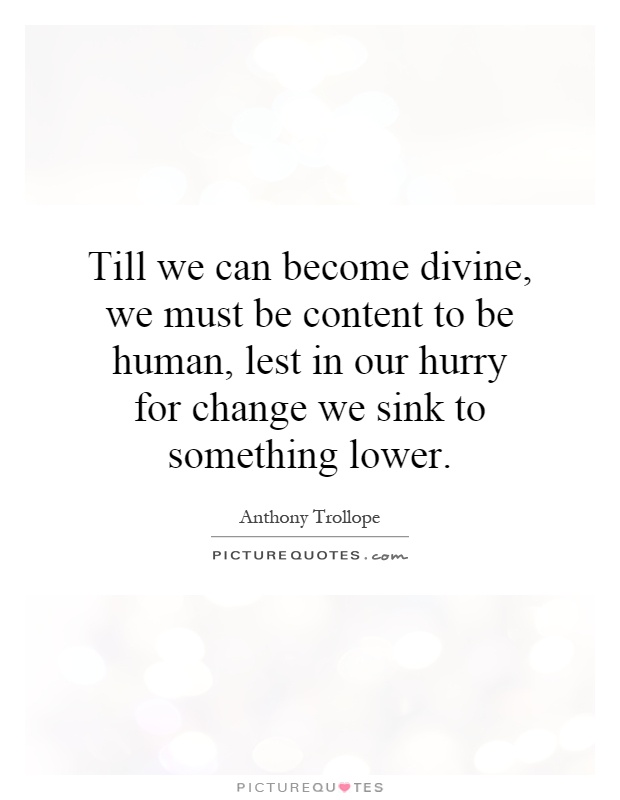Till we can become divine, we must be content to be human, lest in our hurry for change we sink to something lower

Till we can become divine, we must be content to be human, lest in our hurry for change we sink to something lower
Anthony Trollope, a renowned English novelist of the Victorian era, often explored themes of human nature, society, and morality in his works. In the quote, “Till we can become divine, we must be content to be human, lest in our hurry for change we sink to something lower,” Trollope reflects on the idea that humans should embrace their humanity and strive for personal growth and improvement rather than rushing towards change without fully understanding the consequences.Trollope’s novels often depict characters who struggle with their own flaws and imperfections, yet ultimately find redemption through self-awareness and personal growth. In works such as "The Way We Live Now" and "Barchester Towers," Trollope explores the complexities of human nature and the moral dilemmas that individuals face in their quest for self-improvement.
The quote suggests that humans should strive for a higher state of being, but also acknowledges the importance of accepting and embracing their humanity. Trollope believed that true transformation and enlightenment can only be achieved through self-reflection, patience, and a willingness to confront one’s own shortcomings.












 Friendship Quotes
Friendship Quotes Love Quotes
Love Quotes Life Quotes
Life Quotes Funny Quotes
Funny Quotes Motivational Quotes
Motivational Quotes Inspirational Quotes
Inspirational Quotes